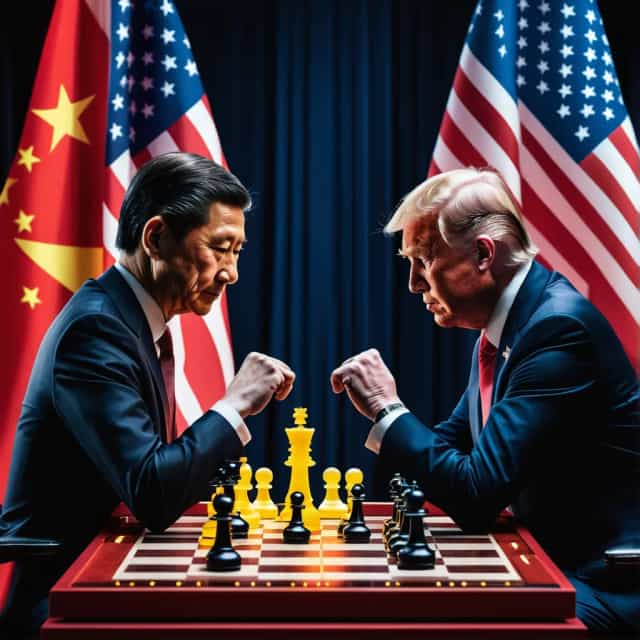
Image source: Block Media
Blockchain as the Foundation for Capitalism 2.0: Exploring the Potential of Web 3.0
Blockchain technology and digital assets have emerged as pivotal innovations capable of redefining modern capitalism. Often referred to as fundamental components of Web 3.0—the third evolutionary phase of the internet—these technological advancements are poised to transcend their perceived status as niche developments. Instead, they are increasingly seen as transformative tools for reshaping economic and social systems at their core.
In a recent commentary covered by Cointelegraph on October 14, Mert Mumtaz, CEO of Helius, elaborated on the substantial potential of blockchain-based technologies to enhance key elements of capitalism. According to Mumtaz, blockchain innovation could drive major progress in areas critical to a well-functioning capitalist ecosystem: decentralization of information, protection of immutable property rights, enhanced transparency, improved incentive alignment, and streamlined financial transactions.
“The ultimate goal of digital assets, or virtual assets, is to fundamentally advance capitalism—a system that is one of the most influential inventions in history,” Mumtaz explained. He went on to describe this evolution as "Capitalism 2.0," underscoring the role blockchain could play in modernizing economic frameworks.
Core Pillars of Blockchain-Driven Capitalism
Blockchain and digital assets are more than technological advancements; they serve as a structural framework for reimagining economic systems. As Mumtaz highlighted, these technologies address critical areas that enhance the core functionality of the capitalist system.
Decentralization of Information and Resources
By decentralizing control over information and resources, blockchain reduces reliance on centralized institutions. This empowers individuals and organizations to directly interact without intermediaries, fostering equitable participation in economic systems. In practice, this decentralization breaks down traditional hierarchies, enabling a wider distribution of power and opportunity.
Immutable Property Rights
The concept of immutable property rights is foundational to trust and legal certainty in ownership, particularly in the increasingly digital-first economy. Blockchain ensures data integrity and security, making it virtually impossible to alter ownership records maliciously. This advancement reinforces confidence in property exchanges at global scales.
Transparency and Accountability
Transparency is another crucial component facilitated by blockchain. With its open and distributed ledger system, blockchain technology provides unparalleled visibility into transactions and governance processes. This increased accountability can significantly improve trust in business dealings, public administration, and cross-border collaborations.
Incentive Alignment and Seamless Transactions
Blockchain introduces novel incentive structures that align stakeholders across industries. Smart contracts, decentralized autonomous organizations (DAOs), and tokenized assets redefine how incentives are designed and distributed. Additionally, frictionless financial transactions enabled by blockchain drastically reduce inefficiencies, allowing capital to flow easily across borders and markets.
These innovations collectively ensure that blockchain is not merely an accessory but an engine of transformation for capitalism as we know it.
Blockchain's Role in Industry Transformation
Mumtaz’s concept of "Capitalism 2.0" aligns with the growing recognition of blockchain's far-reaching applications beyond cryptocurrency. Blockchain has become a cornerstone for reshaping internet technologies and disrupting legacy processes across industries, from finance and real estate to supply chain management and healthcare.
For example, decentralized finance (DeFi) platforms offer alternatives to traditional banking by enabling peer-to-peer lending and borrowing without intermediaries. Supply chain solutions built on blockchain enhance traceability, ensuring that goods are ethically produced and delivered efficiently. Even in governance, blockchain applications have introduced unprecedented levels of transparency, reducing corruption and inefficiency in both public and private systems.
These use cases demonstrate that blockchain is not a futuristic ideal but a present-day catalyst for systemic economic improvements.
The Vision for Economic Advancement
The evolution toward what Mumtaz calls "Capitalism 2.0" suggests a fundamental rethinking of the structures underpinning economic activity. This vision prioritizes inclusivity, efficiency, and trust, leveraging blockchain to address inefficiencies in traditional systems. As governments, businesses, and innovators continue exploring blockchain's capabilities, we may witness a paradigm shift in how global markets operate.
The CEO’s remarks come at an opportune time when blockchain adoption is gaining momentum, cementing its place as a transformative force for decades to come. Whether through enhanced trust mechanisms, equitable access, or frictionless global trade, blockchain is paving the way for a more resilient and adaptive form of capitalism.
For continuous updates on the latest blockchain and cryptocurrency developments, subscribe to Block Media through their Telegram channel. Stay informed with cutting-edge insights and analysis by following Block Media on Google News.










